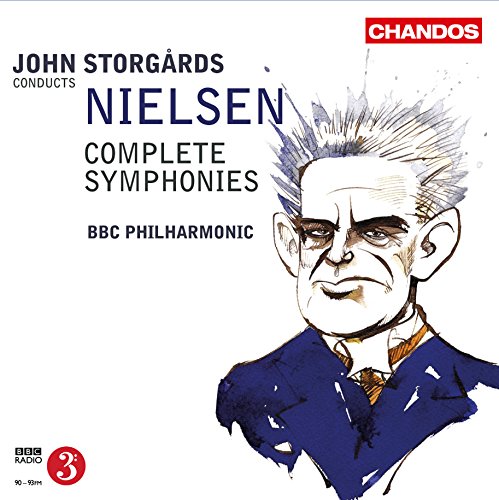Classical Reviews
Prom 36: Hamelin, BBCSO, RothThursday, 13 August 2015
The pulling power of the BBC Proms was in action last night, as a virtually full Royal Albert Hall settled down at 6.30pm, and braced itself for 22 testing minutes of restless, angular, unforgiving 1960s Boulez.The audience had been lured in by the gentler fare that was to come in the second half, but Boulez's Figures - Doubles - Prismes, under the taut control of its pulse by François-Xavier Roth, definitely left its mark. Read more... |
Prom 33: Orchestre Révolutionnaire et Romantique, GardinerMonday, 10 August 2015
Sir John Eliot Gardiner has made great play for years with the idea that Beethoven’s Fifth is a revolutionary symphony in not only musical but political terms. Accordingly the first bars were a call to arms, taking no heed of a restless Proms audience, or the Albert Hall’s generous acoustic, ploughing into and then through the argument with the joyful fury of a class war demo breaking police lines. Read more... |
Prom 32: Bartlett, Elschenbroich, RPO, WhitacreMonday, 10 August 2015
The England cricket team recently went through seven Test matches alternating winning and losing, the longest such sequence in the history of the game. Eric Whitacre managed a similar, and similarly frustrating, series of hits and misses in his Sunday matinee Prom of American music with the Royal Philharmonic Orchestra. Read more... |
Prom 29: Bavouzet, BBC Philharmonic, CollonSaturday, 08 August 2015
Yet another full Proms house sat down, and of course stood, for a rather strange six course meal which turned out not quite what the menu had led us to anticipate. Read more... |
Classical CDs Weekly: Nielsen, Terry Riley, Will ToddSaturday, 08 August 2015
Nielsen: Complete Symphonies BBC Philharmonic/John Storgårds (Chandos) Read more... |
Prom 24: BBCSSO, RunniclesTuesday, 04 August 2015
You never quite know whether a new work by James MacMillan is going to veer towards the masterly or the overblown. His magnificent chain of concertos has arguably yielded masterpieces, but the Third Symphony at the Proms in 2003 sounded like an unwieldy impersonation of the monumental. Twelve years have passed, and he’s shied off writing a Fourth until he felt he had something to say. Read more... |
Prom 23: Verdi's Requiem, BBCSSO, RunniclesMonday, 03 August 2015
A weekend of extremes at the Proms took us from stark solo Bach on Saturday to the massed forces of the BBC Scottish Symphony Orchestra and the chorus of the Deutsche Oper Berlin, gathered under Donald Runnicles for Verdi’s Requiem. As a showcase for the kinds of repertoire the awkward Royal Albert Hall really does do well, it was pretty nigh perfect. Read more... |
Southrepps Sinfonia and Soloists, Southrepps FestivalMonday, 03 August 2015
It only takes one outstanding musician with links to an out-of-the-way place to gather his or her top-notch friends and give a mini-festival of international quality. They’re springing up all over the UK: guiding lights that come to mind are violinist Anthony Marwood in Peasmarsh and tenor Toby Spence at Wardsbrook Farm. Read more... |
Prom 22: Piemontesi, Aurora Orchestra, CollonSunday, 02 August 2015
What would you expect of an ensemble performance played from memory? That the odd lapse, entirely understandable over the span of a 40-minute symphony, would be more than offset, perhaps, by gains in intimacy and flexibility as the players could look around and phrase together, respond to a conductor’s nudge and turn on a sixpence. Read more... |
Prom 21: Alina Ibragimova plays Bach (II)Sunday, 02 August 2015
While Friday night’s triptych of solo Bach began and ended in a sombre, contemplative place, the arc created for the second sequence by pairing the final sonata for solo violin with the second and third partitas is altogether more dramatic. In Ibragimova’s ordering we opened with the monolithic D minor Partita, warming through the C major Sonata before ending joyfully with the E major Partita. Read more... |
Pages
inside classical music
latest in today
 'We are bowled over!' Thank you for your messages...
'We are bowled over!' Thank you for your messages...









